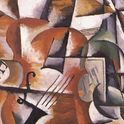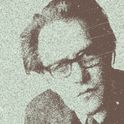"Does anything remain of the left’s longstanding love affair with the French Revolutionary tradition?" ©WM Commons
In September 2004, over two consecutive issues of the London Review of Books, the Marxist historian Perry Anderson issued forth a 20,000-word diagnosis of what, in his view, was ailing France. Unlike most British commentators, Anderson rooted French decline not in the country’s attachment to socialist dirigisme, but rather in an Anglo-American neoliberal incursion that had undermined the very things that had once made France great: its culture (producing the finest literature and films), politics (playing the lead role in European integration) and intellectual accomplishments (boasting some of the best philosophy, history and sociology departments in the world). Why, Anderson asked, had no contemporary French intellectual acquired an international reputation equal to that of the great French thinkers of the not-too-distant past, such as Jean-Paul Sartre, Roland Barthes, Jacques Lacan, Michel Foucault or Jacques Derrida? Anderson argued that institutional reasons were primarily to blame. By the early 1980s intellectual life in France had been hijacked by neoliberal financial and political interest groups that backed those scholars who were determined to enthrone “liberalism as an all-encompassing paradigm of French public life.” Of all the intellectuals involved in this liberal takeover, Anderson singled out one in particular: the historian François Furet. Yet according to Christophe Prochasson’s recent biography of Furet, Les chemins de la mélancolie, published in France last year, Anderson and his allies have committed an egregious error of misinterpretation. Furet was really on their side. He never left the left, he simply sought to reform it. From the 1960s until his death in 1997, Furet developed a highly critical interpretation of the French Revolution that enraged his opponents on the left in France. For them, the Revolution continues to be pivotal to any understanding of the relationship between the country’s past, present and future. Furet’s heresy was to challenge the idea that the Revolution remains a source of viable political and social alternatives to the status quo. He believed that since there was now a universal acceptance of the French Republic, it was no longer necessary to keep fighting the old revolutionary battles. Born into a wealthy Parisian banking family, Furet joined the French Communist Party as a student in 1949. He resigned from the Party in protest over its political failures in the late 1950s. This was the beginning of Furet’s gradual move away from the radicalism of his youth. Between 1958 and 1965, he abandoned his doctorate in history and began writing as a journalist for the France-Observateur and its successor, Le Nouvel Observateur. In 1965, with his then brother-in-law Denis Richet, Furet published La Révolution française, a book that mounted a challenge to the influential “social interpretation” of the French Revolution. Social historians interpreted the Revolution as driven by class struggles shaped by the economic conditions of the period. The social historians were not all Marxists, but they were typically influenced by Marxist categories, which treated economic structures and class relations as the focal points of historical research. According to the social historians, the winner of the Revolution was the bourgeoisie, which destroyed feudalism and ushered in the capitalist world order. There was a silver lining in this story: the founding document of the Revolution, the “Declaration of the Rights of Man” (1789), when read properly, contained the seeds of future socialism. This interpretation of the Revolution not only prioritised the efforts of the poorest classes—the sans-culottes—but also vindicated the importance of the ideals of 1789 for present-day France. La Révolution française challenged this interpretation, portraying the period from 1789 until the Terror as one of enlightened moderation, in which liberty and equality were promoted and the excesses of church power peacefully curtailed. For Furet, then, the Revolution was, at bottom, a liberal reform movement, while the period after 1793 was a detour from the path of enlightened moderation. The book was castigated by social historians as ahistorical and anti-French, and Furet was denounced for succumbing to the ideological tensions of the Cold War. In 1970, he responded to his critics, publishing a “Revolutionary Catechism” in which he lambasted the social historians for being less concerned with historical truth than with defending socialist ideals. The “Revolutionary Catechism” is widely acknowledged, even by Furet’s opponents, to be a polemical masterpiece. It was followed, in 1978, by Penser la Révolution française (published in France in 1978 and translated into English as Interpreting the French Revolution), Furet’s mature, more theoretical alternative to the classical interpretation. By this time Furet had rejected his earlier two-part account of the Revolution (Enlightenment moderation followed by Terror). Now he argued that the Terror was inseparable from 1789. With the collapse of the Ancien Régime, democratic ideals came to the fore. Society recomposed itself through a new political vocabulary of direct democracy, egalitarianism and the “general will”. This vocabulary carried within it, Furet argued, the seeds of the demagoguery to come. It was not class struggle but the desire to “radicalise the Revolution by making it consistent with its discourse” that was the driving force. By the 1980s Furet had become one of France’s most influential public intellectuals. He was president of the École des hautes études en sciences sociales (EHESS), the institutional locus of French liberalism, and founder of the Saint-Simon Foundation, a think tank that promoted economic liberalism. His revisionist views had successfully reoriented studies of the Revolution away from social history towards cultural and intellectual history. Furet was a media darling—on air he simply out-charmed his opponents, much to their irritation. In 1989 French pundits proclaimed him “king of the bicentennial” celebrations for the French Revolution. Since Furet’s death, the gap dividing social and cultural historians has narrowed. In fact, Furet’s most formidable opponents today are not historians of the French Revolution at all. They are mostly intellectual historians of the 20th century interested in Furet’s political trajectory and his contribution to French intellectual life. Perry Anderson, for example, saw in Furet an excessively “seamless unity between his work on the past and his interventions in the present.” Furet’s success, according to Anderson, was connected to his role as the intellectual spokesman of an ideological network, bankrolled by big business, promoting American-style neoliberalism. Anderson argued that the revival of liberal themes in France in the mid-1970s had less to do with the power of ideas than with an organisational strategy which relied on the media and bodies like the Saint-Simon Foundation. Furet’s rise helps to explain France’s waning intellectual influence. Why look to France when it no longer offers political and social alternatives to Anglo-American political thought? Anderson’s attack on Furet caused quite a stir in France. The leading historian Pierre Nora—another former brother-in-law of Furet’s—responded that French-bashing had become an “international sport” and wondered why Anderson had so targeted intellectual life in France, when there was similar evidence of decline throughout Europe and North America. Where, Nora asked, are the successors to Benedetto Croce, Bertrand Russell or C Wright Mills? Furet’s most acute contemporary critic is not Anderson, however, but the American historian Michael Scott Christofferson. He argues that the opportunity to write La Révolution française came Furet’s way as a direct result of the success of his journalism, which he began to write after abandoning his doctorate. Furet’s move away from Marxism was in turn facilitated by the unexpected success of La Révolution française, which put him on bad terms with established historians who believed that his newfound fame “bypassed the academic hierarchy through the back staircase.” On this reading, Furet’s “Revolutionary Catechism” had little to do with a high-minded moral disdain for the excesses of the Revolution, but rather emerged from the souring of his relations with the communists who dominated the historical establishment well into the 1970s. For Christofferson, Furet’s subsequent attacks on the social interpretation of the Revolution must be seen as an attempt to discredit his opponents, rather than as part of a wholly disinterested search for historical truth. According to Christofferson, Furet won the argument by taking advantage of the anti-totalitarian moment in the mid-1970s in France, when many younger leftist intellectuals became disillusioned with the reality of “actually existing socialism.” Exploiting the popularity of Solzhenitsyn’s Gulag Archipelago, a publishing sensation in France, Furet argued that the Gulag should lead to a reconsideration of the Terror. By drawing a straight line from the Terror to the Gulag, Furet provided his audience with a novel way of understanding the origins of totalitarianism, and also offered an explanation for French intellectuals’ historic antipathy towards liberalism. (The influence of the latter can be clearly discerned, for example, in Tony Judt’s condemnation of the post-war French left in his 1993 book, Past Imperfect.) Christofferson’s work has been praised in France for offering the first critical history of the French anti-totalitarian movement. Furet’s defenders, by contrast, see it as just one among a series of attacks on his legacy. In 2007, Ran Halévi—a French historian and former colleague of Furet’s at the EHESS—wrote a defence of Furet entitled, L'expérience du passé: François Furet dans l'atelier de l'histoire. Halévi attempted to offer an honest portrait of the man, while intentionally ignoring polemical dialogue with Furet’s “new radical” critics. But one scholar who has accepted this challenge is Halévi’s colleague, the intellectual historian Christophe Prochasson, whose biography of Furet has yet to be translated into English. Prochasson argues that Christofferson’s suggestion that Furet’s successes are inseparable from his journalistic success is a red herring. Christofferson is simply disguising his political disagreements with Furet with academic arguments. There is nothing wrong with the “double quality” (popular and academic) of Furet’s work. Fair enough, but what about Christofferson’s argument that Penser la Révolution française cannot be deemed a serious work of history, since it is really a piece of anti-revolutionary ideology aimed at those let down by the broken promises of Marxism? Prochasson sees this interpretation as too reductive and psychological. Why, he asks, should we limit Furet’s masterwork simply to the context of the anti-totalitarian moment when he had begun developing its themes well before the mid-70s? Prochasson’s central argument is that, for Furet, history is a way of continuing politics by other means. Furet wanted the left to accept that the market economy and capitalism were here to stay. But this did not mean abandoning the Revolution entirely. Even if utopia was no longer possible, the Revolution contained elements that remained alive, not least the Enlightenment tradition of moderate reform. Furet’s work “invites the left to liberate itself from the past in order to think better about the future,” writes Prochasson. Prochasson’s depiction of Furet as a kind of modern-day Luther—a reformer of the left who nailed his revolutionary catechism to the door of the Sorbonne only to be excommunicated and forced to start a new Church—has had a generally positive reception in France. But the battle over Furet is not yet won—Christofferson is currently at work on his own biography of him. Does anything remain of the left’s longstanding love affair with the French Revolutionary tradition? Does anything remain, more generally, of France’s once pre-eminent cultural and intellectual life? That such questions are being asked, both in the media and in academia, explains the intensity of recent historiographical struggle over Furet’s legacy. These are sensitive questions, and they will not go away. Yet it would be a mistake to lose faith entirely. Perry Anderson, for instance, has recently returned to the subject of France, with a new message: Stop concentrating on Paris and look instead on smaller cities, such as Nantes, which are home to some of the finest intellectual and cultural life that Europe has to offer. Anderson, it seems, has made his peace with France by giving up on Paris.












